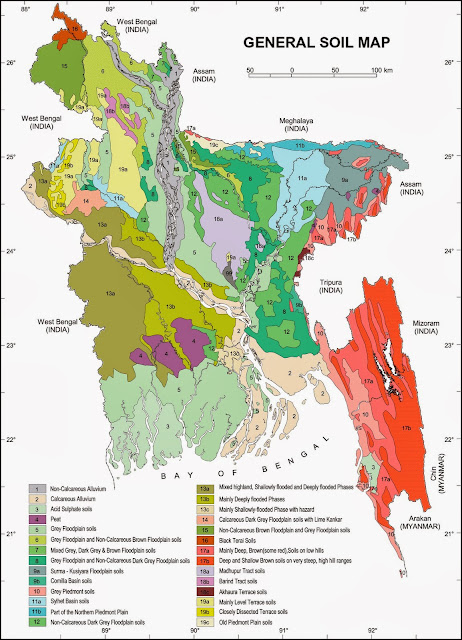Democracy and Democratic Rights in Bangladesh: General People's Perception of Current Human Rights, Social Justice, and Democratic Practices in Politics
Introduction:
Democracy is a cornerstone of a just and inclusive society, where citizens can participate in decision-making and enjoy fundamental human rights. This article explores the general people's perception of the state of human rights, social justice, and democratic practices in Bangladesh. By understanding the key concerns and viewpoints of the population, we can shed light on the areas that need improvement for a more vibrant and participatory democracy.
Democracy is a cornerstone of a just and inclusive society, where citizens can participate in decision-making and enjoy fundamental human rights. This article explores the general people's perception of the state of human rights, social justice, and democratic practices in Bangladesh. By understanding the key concerns and viewpoints of the population, we can shed light on the areas that need improvement for a more vibrant and participatory democracy.
Human
Rights:
The general perception among the people of Bangladesh reflects concerns about the state's commitment to upholding human rights. Incidents of arbitrary arrests, restrictions on freedom of expression, and allegations of extrajudicial actions have raised doubts about the protection of fundamental civil liberties. Citizens need more robust measures to safeguard their rights to life, liberty, freedom of speech, and assembly.
The general perception among the people of Bangladesh reflects concerns about the state's commitment to upholding human rights. Incidents of arbitrary arrests, restrictions on freedom of expression, and allegations of extrajudicial actions have raised doubts about the protection of fundamental civil liberties. Citizens need more robust measures to safeguard their rights to life, liberty, freedom of speech, and assembly.
Social
Justice:
Promoting social justice requires addressing the economic and social inequalities prevalent in society. Many Bangladeshis feel that disparities continue to persist, limiting their access to quality education, healthcare, and economic opportunities. The marginalized communities, such as ethnic and religious minorities, face discrimination and limited representation. There is a need for policies and initiatives that prioritize equitable distribution of resources and empower vulnerable groups to bridge these gaps.
Promoting social justice requires addressing the economic and social inequalities prevalent in society. Many Bangladeshis feel that disparities continue to persist, limiting their access to quality education, healthcare, and economic opportunities. The marginalized communities, such as ethnic and religious minorities, face discrimination and limited representation. There is a need for policies and initiatives that prioritize equitable distribution of resources and empower vulnerable groups to bridge these gaps.
Democratic
Practices in Politics:
Citizens' perception of democratic political practices reveals concerns about the level playing field and the fair representation of political parties. The prevalence of political violence during elections and allegations of electoral fraud undermine public confidence in the electoral system. The need to ensure transparent party funding, impartiality of election commissions, and an open space for political dialogue are highlighted as critical factors to strengthen democratic practices.
Citizens' perception of democratic political practices reveals concerns about the level playing field and the fair representation of political parties. The prevalence of political violence during elections and allegations of electoral fraud undermine public confidence in the electoral system. The need to ensure transparent party funding, impartiality of election commissions, and an open space for political dialogue are highlighted as critical factors to strengthen democratic practices.
Accountability
and Transparency:
Citizens
emphasize the importance of accountability and transparency in governance.
Corruption and the lack of effective mechanisms to hold public officials
accountable have eroded trust in the political system. Calls for more robust
anti-corruption measures, independent oversight institutions, and increased
transparency in decision-making processes resonate among the people.
Civic
Participation and Engagement:
The general population believes fostering civic participation and engagement is vital for a robust democracy. They call for enhanced opportunities for citizens to voice their concerns, provide input in policymaking, and engage in community-based initiatives. Strengthening civil society organizations, promoting citizen journalism, and encouraging platforms for public dialogue are perceived as effective means to ensure active citizen participation.
The general population believes fostering civic participation and engagement is vital for a robust democracy. They call for enhanced opportunities for citizens to voice their concerns, provide input in policymaking, and engage in community-based initiatives. Strengthening civil society organizations, promoting citizen journalism, and encouraging platforms for public dialogue are perceived as effective means to ensure active citizen participation.
Conclusion:
The perception of
democracy and democratic rights among the general people of Bangladesh
highlights their concerns regarding human rights, social justice, and
democratic practices in politics. Addressing these concerns demands a concerted
effort from the government, civil society, and all stakeholders to protect
human rights, promote social justice, and strengthen democratic institutions.
By actively involving citizens in decision-making processes and implementing
reforms that enhance transparency, accountability, and inclusivity, Bangladesh
can progress towards a society that upholds and respects the rights and
aspirations of all its people.


